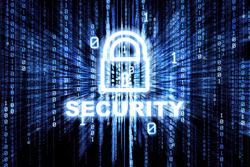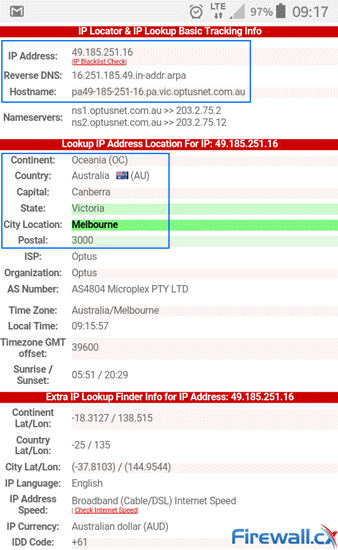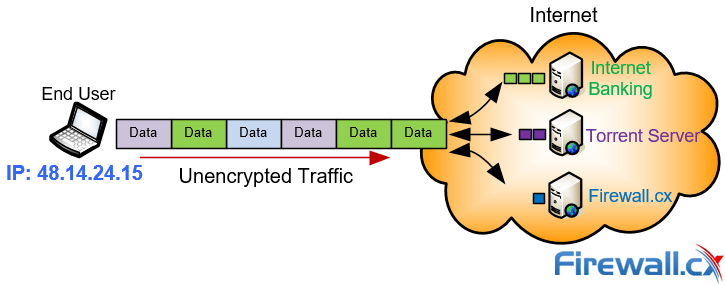What is a VPN?
 VPN (Virtual Private Network) is a well-known acronym amongst regular internet users. Initially used within businesses to securely connect to the corporate network, nowadays it’s being used by almost any type of user for anonymous browsing, protecting their privacy and stopping ISPs and government agencies tracking their online activities and transactions who are looking to capture users performing illegal file sharing of movies, music albums, torrenting or even trying to access geo-restricted content such as Netflix, Hulu and other streaming services.
VPN (Virtual Private Network) is a well-known acronym amongst regular internet users. Initially used within businesses to securely connect to the corporate network, nowadays it’s being used by almost any type of user for anonymous browsing, protecting their privacy and stopping ISPs and government agencies tracking their online activities and transactions who are looking to capture users performing illegal file sharing of movies, music albums, torrenting or even trying to access geo-restricted content such as Netflix, Hulu and other streaming services.
With the exponential rise of internet security threats it doesn’t really matter what type of device you’re using - whether it’s a PC, MAC, tablet, iPhone, Android device or smartphone - the risk is the same. Every single one of these devices can be tracked and their precise location known without any effort.
For example, the screenshot below was taken from a mobile phone. It shows a website visited that is able to track the mobile device’s IP address (49.185.251.16) and retrieve a significant amount of information regarding its location. It’s detected the country (Australia), the state (VIC), City (Melbourne), ISP/Mobile carrier (Optus) plus location and geographic coordinates (latitude and longitude)!

Information captured from a non-VPN internet user
As you can appreciate, the amount of information websites can capture is alarming. In a similar way ISPs, hackers and government agencies can intercept and capture traffic to and from a user’s mobile device or PC at home.
Now that we appreciate how exposed we really are, let’s take a look at how VPNs help protect our identity and personal information.
Who Needs a VPN?
A VPN can offer a number of substantial advantages and, depending on your internet activities, can prove to be mandatory.
A VPN service will allow you to “hide” your physical location by masking the IP address assigned by your internet service provider (ISP). In addition, a VPN provides a basic level of security and confidentiality as all information to and from your computer or mobile device is encrypted. This prevents hackers or ISPs from monitoring your online activities.
Users typically require a VPN service for any of the following activities:
- Hide your internet activities from your ISP and government. ISPs around the world unofficially monitor user traffic in order to intercept sensitive or top secret information. More than 41 countries are now members of the “Five Eyes” – a global intelligence alliance monitoring electronic information (email, faxes, web traffic etc) and private communication channels (VPNs). The National Security Agency (NSA) was uncovered spying on hundreds and thousands of VPN connections based on Cisco’s PIX Firewalls for over a decade thanks to a VPN exploit they discovered and was never shared with the public.
- Accessing geo-restricted content. A prime explain is accessing US-based Netflix or Hulu when travelling overseas or accessing sites providing local online video/streaming, TV shows etc from anywhere around the world.
- Bypassing web filters and accessing restricted websites or internet services such as online gaming, Skype, Dropbox, OneDrive etc. Recent bans by governments blocking popular Torrent sites such as ThePiratebay.org, TorrentHound, Torrentz, IsoHunt and others have pushed users to VPN services in order to access these sites and services without restriction.
- Peer-to-Peer (P2P) file sharing. Usually blocked by firewalls or ISPs people are moving to VPN and ToR based networks in order to freely share data with each other without having to worry about being tracked or blocked.
- Torrenting. A big topic indeed. While there are many torrents that are legally distributed e.g Linux ISO images, open-source applications and games, Torrent seeders and leechers are monitored by agencies acting on behalf of their clients MPAA (Motion Picture Association of America) & RIAA (Recording Industry Association of America) to protect their copyright materials. While these agencies monitor and stop illegal video/music downloading they have been found on many occasions to incorrectly accuse citizens of illegally downloading copyright content.
- Avoid Bandwidth Throttling. ISPs are primarily responsible for this one. In order to save bandwidth they unofficially throttle torrent or other similar traffic, slowing download speeds considerably and sometimes to the point where users quit downloading. When it comes to VPN for Torrenting, P2P and File sharing users can avoid bandwidth throttling and in many cases increase their download speeds up to 3 times!
- Accessing the internet from public WiFi hotspots. Using Public WiFi and Guest WiFi hotspots poses serious security threats. These are overcome with the usage of VPN services.
Accessing the Internet without a VPN
Below is a diagram showing a typical user accessing the internet without a VPN. The user’s IP address is assigned by the ISP and is visible to the internet. Any online resource accessed by the user is completely visible to the ISP and anyone monitoring the user’s IP address:

Unencrypted internet traffic is visible and easily monitored
Of course resources such as Internet Banking usually encrypt the data transferred between the client and the server but the traffic source (user IP) and destination (server IP) are still fully visible. Similarly other activities such as Torrent Downloads are fully traceable back to the user.
It should also be noted that ISPs always keep log files of their users’ IP addresses. This means that the ISP is fully aware of the IP address assigned to each of its users. By law, these logs are stored for years and can be used as evidence in the event of a law suit or investigation. This applies to home and mobile users.
Using a VPN Service Provider Changes the Game
To use a VPN service provider you must first register with a VPN Service Provider of your choice. VPN subscriptions start from a low $3US - $8US per month making them affordable for any user. Once you’ve purchased a VPN subscription you are able to download and install the provided VPN Client on to your devices.